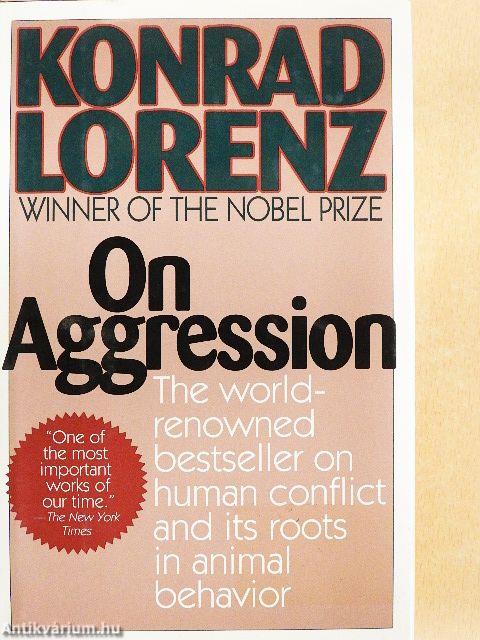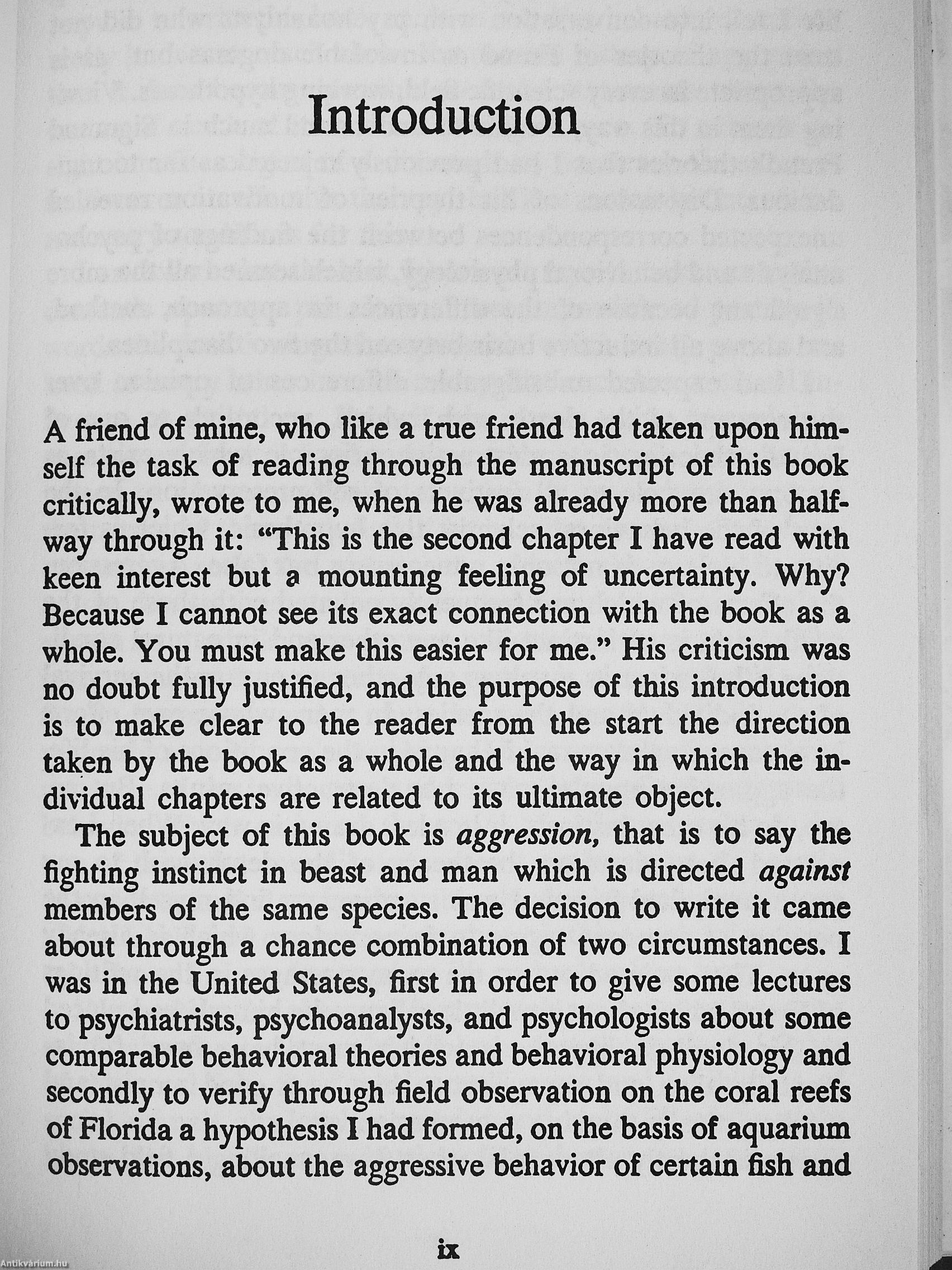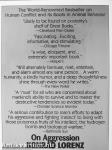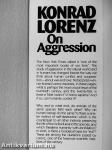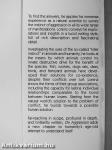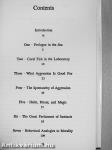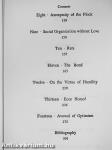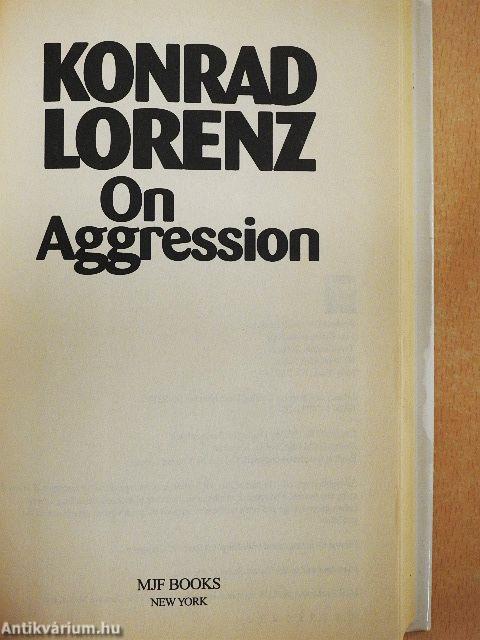1.104.265
kiadvánnyal nyújtjuk Magyarország legnagyobb antikvár könyv-kínálatát

VISSZA
A TETEJÉRE
JAVASLATOKÉszre-
vételek
On Aggression
| Kiadó: | MJF Books |
|---|---|
| Kiadás helye: | New York |
| Kiadás éve: | |
| Kötés típusa: | Fűzött kemény papírkötés |
| Oldalszám: | 306 oldal |
| Sorozatcím: | |
| Kötetszám: | |
| Nyelv: | Angol |
| Méret: | 22 cm x 14 cm |
| ISBN: | 1-56731-107-5 |
naponta értesítjük a beérkező friss
kiadványokról
naponta értesítjük a beérkező friss
kiadványokról
Előszó
TovábbFülszöveg
The World-Renowned Bestseller on Human Conflict and its Roots in Animal Behavior
"Likely to be found on posterity's shelf of Great Books."
—Cleveland Plain Dealer
"Fascinatins Excitins, informative, and stimulatins."
—Chicaso Tribune
"a wise, eloquent, and extremely important book."
—Harper's
"Will alternately bemuse, rivet, entertain, and alarm almost any sane person A warm humanity, a kindly humor, and a deep thoughtfulness shine through every word he writes."
—The New Yorker
"A 'must' for all who are concerned about mankind's ability to survive and to master the destructive tendencies so evident today."
—Christian Science Monitor
"A serious contribution to man's efforts to adapt his aggressive and fighting 'instinct' to living with those poisonous fruits of his intellect, the hydrogen bomb and biological warfare."
—Baltimore Sun
On Aggression KONRAD LORENZ
' ; 1
KONRAD LORENZ
Aggression
The New York Times called it "one of the most important books of our... Tovább
Fülszöveg
The World-Renowned Bestseller on Human Conflict and its Roots in Animal Behavior
"Likely to be found on posterity's shelf of Great Books."
—Cleveland Plain Dealer
"Fascinatins Excitins, informative, and stimulatins."
—Chicaso Tribune
"a wise, eloquent, and extremely important book."
—Harper's
"Will alternately bemuse, rivet, entertain, and alarm almost any sane person A warm humanity, a kindly humor, and a deep thoughtfulness shine through every word he writes."
—The New Yorker
"A 'must' for all who are concerned about mankind's ability to survive and to master the destructive tendencies so evident today."
—Christian Science Monitor
"A serious contribution to man's efforts to adapt his aggressive and fighting 'instinct' to living with those poisonous fruits of his intellect, the hydrogen bomb and biological warfare."
—Baltimore Sun
On Aggression KONRAD LORENZ
' ; 1
KONRAD LORENZ
Aggression
The New York Times called it "one of the most important books of our time". This study of assression in the natural world and in humans has chansed forever the way we think about human conflict and cooperation—about war and love. Nobel prize-winner Konrad Lorenz explores, in these pases, what is perhaps the most crucial issue of the twentieth centur/, and the twenty-first: is there a "killer instinct" in homo sapiens? And if so, can humanity control it?
Why, and to what end, do animals of the same species fisht each other? Why do human beinss do the same? Is there a sinister instinct of self-destruction which is the counterpart to all other instincts presen/ins the life of the individual and the species, and which threatens humanit/ with annihilation? In short, is there a biolosical basis for "evil"? These are amons the questions posed by Lorenz, one of the foremost scientific intellects of the centur/.
To find the answers, he applies his immense experience as a natural scientist to survey the instinct of assression in all its wide ranse of manifestations. Lorenz conveys his explorations and insishts in a lucid writins style, full of rich description and fascinatins detail.
Investisating the uses of the so-called "killer instinct" in animals and humanity, he looks at the means by which animals control his innate destructive drive for the benefit of the species. Fish, wolves, dogs rats, deer, birds, and farmyard animals have developed their solutions for co-existence, despite their conflicts over turf. Lorenz shows the forms of their group associations, including the capacity for lasting individual relationships comparable to the bond between human lovers. Starting from the natural world's solution to-the problem of conflict, he builds towards a possible human solution.
Far-reaching in scope, profound in depth, and brilliantly written, On Assression adds a new chapter to humanity's age-old attempt to understand itself.
9oj Vissza
Témakörök
- Természettudomány > Állatvilág > Etológia
- Idegennyelv > Idegennyelvű könyvek > Angol > Természettudományok > Egyéb
- Pszichológia > Alkalmazott lélektan > Pszichotechnika > Kommunikáció, konfliktuskezelés
- Pszichológia > Idegennyelvű > Angol
- Pszichológia > Szociálpszichológia > Általában
- Idegennyelv > Idegennyelvű könyvek > Angol > Pszichológia
Konrad Lorenz
Konrad Lorenz műveinek az Antikvarium.hu-n kapható vagy előjegyezhető listáját itt tekintheti meg: Konrad Lorenz könyvek, művekMegvásárolható példányok
Nincs megvásárolható példány
A könyv összes megrendelhető példánya elfogyott. Ha kívánja, előjegyezheti a könyvet, és amint a könyv egy újabb példánya elérhető lesz, értesítjük.



